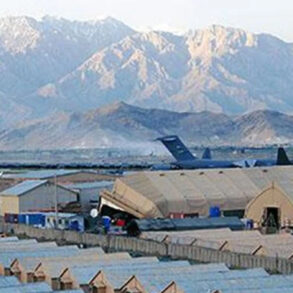
Interior Secretary Deb Harland confirmed on Tuesday that the Biden administration’s climate agenda is strengthening China.
During a House Appropriations Committee hearing on the agency’s proposed budget, Haaland was repeatedly asked about the administration’s environmental policies blocking the domestic production of critical minerals and opening the door to more reliance on Chinese-sourced minerals. Harland confirmed that green energy courses “deepen” reliance on Chinese imports.
“I’m telling you right now that 63% of rare earth mining [occurs in China],” Reschenthaler stated. “By deductive reasoning, that would mean that electric vehicles and renewables deepen our reliance on China. Correct?”
“Yes,” Haaland responded.
Fox News reported:
Green energy technologies like electric vehicle batteries, solar panels, and wind turbines require a massive expansion of cobalt, copper, lithium, nickel, graphite, zinc, and other mineral production. According to an analysis from the International Energy Agency, an electric vehicle requires 500% more mineral resources than a traditional gas-powered car while a single onshore wind turbine plant requires 800% more minerals than a typical fossil fuel plant.
The vast majority of mining and processing of such materials, though, takes place outside the U.S., making the nation more reliant on foreign minerals despite its large domestic resources. A White House report published in 2021 concluded that China alone controls more than half of all global rare earth mining capacity and a staggering 85% of rare earth refining capacity.
“The United States must secure reliable and sustainable supplies of critical minerals and metals to ensure resilience across U.S. manufacturing and defense needs, and do so in a manner consistent with America’s labor, environmental, equity and other values,” the report added.
The Department of Interior, led by Haaland, has taken quite a few actions to curb critical mineral production nationwide.
Earlier in 2023, Haaland finalized a 20-year ban on mining across 225,504 acres in a northern Minnesota forest area that contains critical mineral reserves. This came one year after revolving leases were given to a mining firm in the region.
The area is home to about 88% of the nation’s cobalt reserves, and also home to a large amount of copper, nickel, and platinum-group elements.
“Whether it’s northern Minnesota, southern Arizona, Alaska, or now South Dakota, these sorts of land restrictions from the anti-mining Biden administration hamstring domestic development of minerals we need for national defense, energy technology, and everyday life,” Rep. Pete Stauber, R-Minn., the chairman of the House Natural Resources Energy and Mineral Subcommittee said.
“We need to be using our resources we have here with our workforce, not taking them offline,” he continued.
Haaland then later denied in her exchange with Reschenthaler that the Biden administration policies were boosting Chinese supply chains at the expense of our own.
“You just told me that your department banned critical mineral mining in Rapid Creek watershed and in northeast Minnesota. You also told me that we’re heavily dependent on China,” the Pennsylvania Republican said.
“Would your actions not make us more heavily dependent on China?”
“No. Since 2021, the [Bureau of Land Management] has approved 20 new mines,” Haaland responded.




